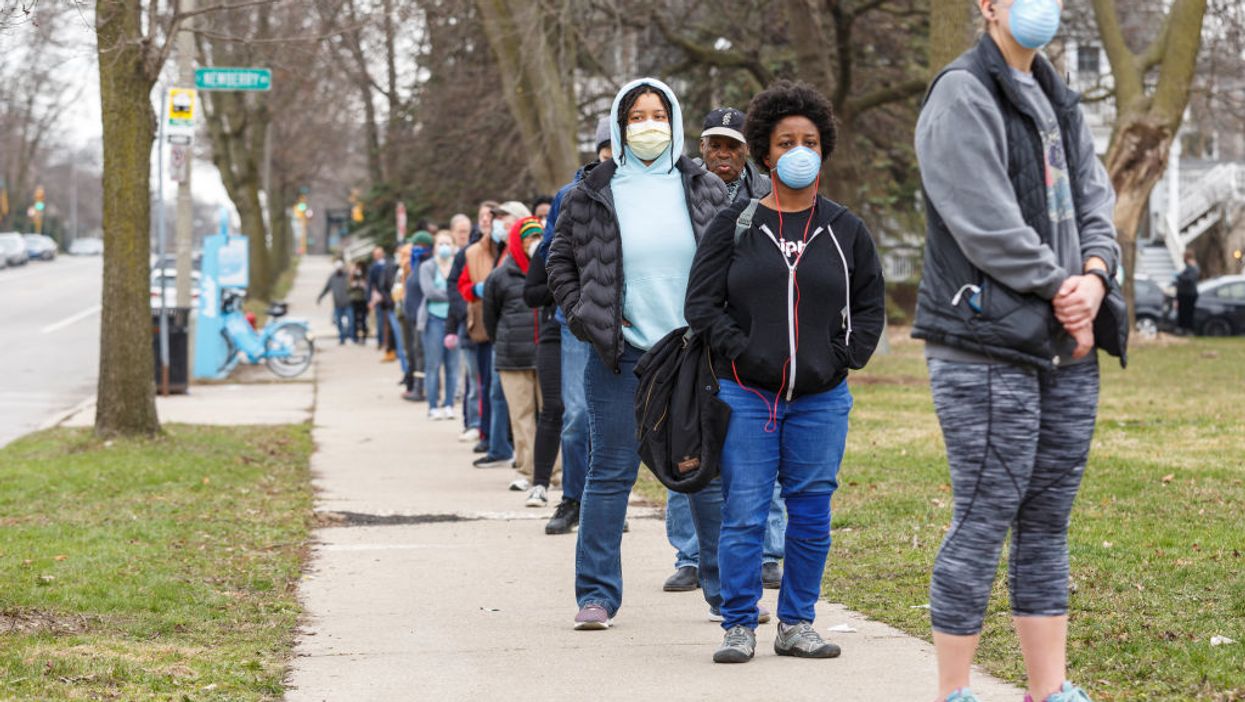The partisan fight over how to maintain voter registration lists has delivered one victory for each side this week — both in Midwestern states central to the November election.
The top court in Wisconsin decided against fast-tracking a decision about removing from the rolls more than 100,000 people with potentially out of date registrations — a delay that benefits the cause of voting rights advocates. But in neighboring Michigan, a conservative group claimed victory and dropped its lawsuit against Detroit after the city took a group of dead people and duplicate names off the rolls.
The cases capture a debate that pitches those (mostly Democrats) who believe aggressive attempts to remove, or "purge," names from voter rolls are an attempt at voter suppression against those (mostly Republicans) who believe poorly maintained voter lists clogged with the names of the mortally or physically departed provide an opportunity for fraud.
The Wisconsin Supreme Court on Tuesday rejected a request to expedite a case that initially involved the proposed removal of more than 230,000 names from the rolls.
Instead, the court said it would hear oral arguments in late September. The schedule makes it highly unlikely the court will rule before Election Day, when the state's 10 electoral votes could play a central role in the presidential contest.
Since the legal dispute began, about 100,000 of the voters facing potential removal have updated their information — still leaving in dispute 4 percent of the people on the rolls statewide.
Election rules in Wisconsin prohibit any change to the voter rolls within 30 days of an election, making it nearly impossible to remove any names before Nov. 3 even if the court rules that way.
In addition, a newly elected and progressive Supreme Court justice takes the bench in August, narrowing conservative control of the court.
The original suit was filed in November by a conservative think tank and law firm, the Wisconsin Institute for Law and Liberty, claiming the elections commission was ignoring state law requiring the removal of people who don't answer a mailing sent to those who appear to have moved.
A trial court judge ordered the rosters culled but an appeals court unanimously overturned the judge in February.
In the Detroit case, the conservative. Indianapolis-based Public Interest Legal Foundation, which had sued city election officials in federal court in December, dropped its lawsuit on Tuesday after noting that officials had taken action to remove some of the out-of-date registrations.
The foundation claimed in its suit to have identified more than 2,500 dead people who remained registered to vote.
More than half had been dead more than a decade, nearly 900 have been dead more than 15 years and one was found with a birth date listed as 1823.
In addition, foundation researchers discovered what appeared to be duplicate and triplicate registrations for individuals, using different addresses.
The group repeatedly brought its findings to the attention of Detroit election officials but says the city did not take any steps to clean up the voting rolls.
Detroit election officials said the recent updates to voter rolls were largely the result of regular maintenance but conceded they had looked into a few specific claims in the lawsuit.
It turns out the listing for the voter with a birth date of 1823 caused by a typo.




















Trump & Hegseth gave Mark Kelly a huge 2028 gift